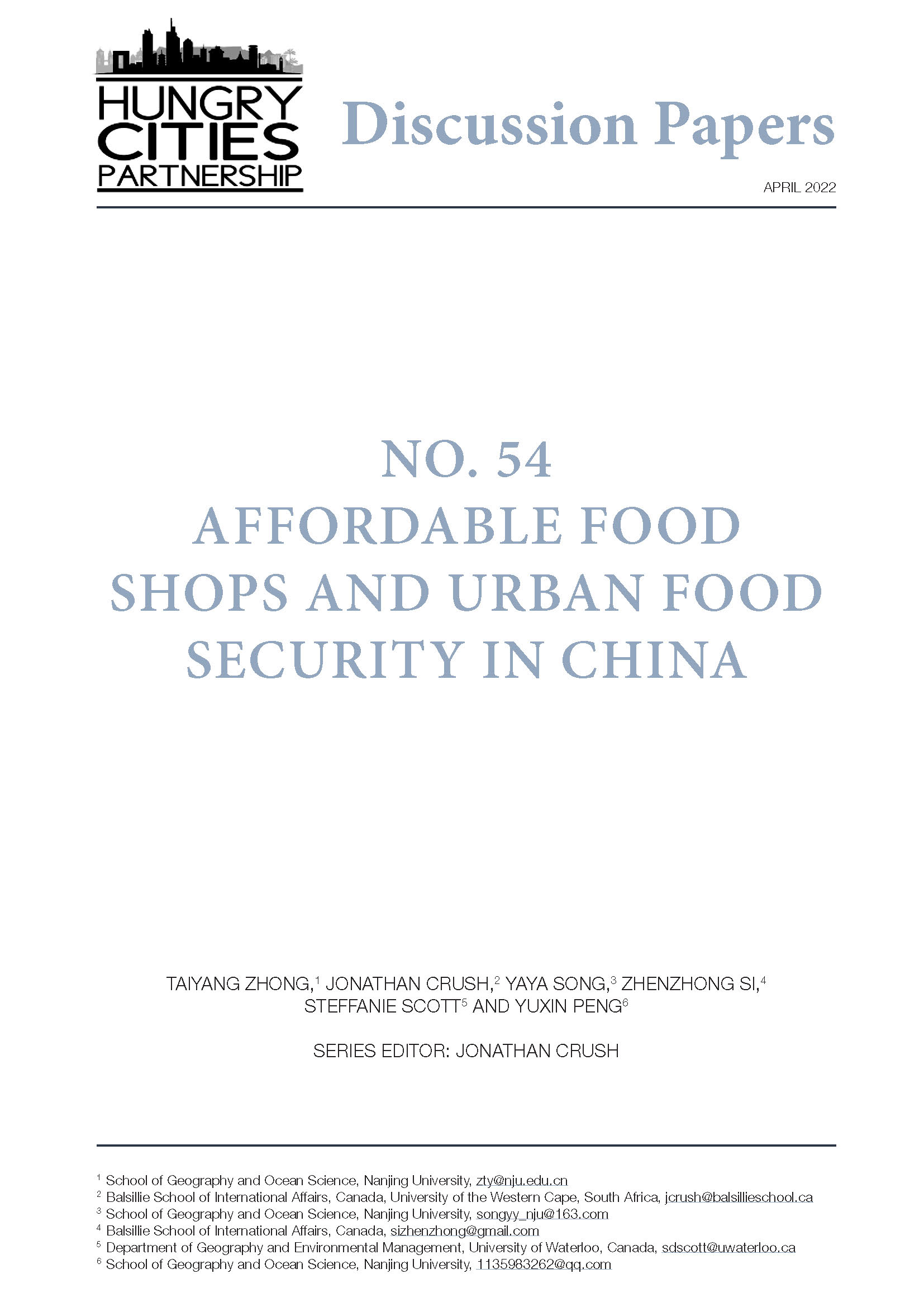Food subsidies have been widely implemented as part of government policies to mitigate food insecurity among the urban poor. The effectiveness of supply and demand-side subsidies have been a source of debate in the literature. One form of supply-side subsidy designed to make food more affordable to low-income consumers is to offer subsidies to retail outlets. China’s affordable food shop (AFS) program is one such example. The program was introduced by the central government in 2011 and implemented by municipal governments. Shops signing on to the program were required to sell a list of essential food items at a discount in exchange for a range of subsidies. To date, there has been no research examining the effectiveness of the AFS program despite more than a decade of implementation. This study focuses on a case study of Nanjing, one of the earliest Chinese to introduce an AFS program and which grew very quickly in the years that followed. In early 2020, however, the Nanjing program was closed down which raises important questions about its effectiveness and impact. Using household food security and consumption data, this paper uses logistic regression to examine the effectiveness of the AFS program in achieving its core goals. Our research indicates that the affordable-price food shop program has had a limited effect in reducing food insecurity and the failure of food retail subsidization is therefore unsurprising. Improving consumer income subsidies would be a better strategy for mitigating food insecurity among low-income households.

